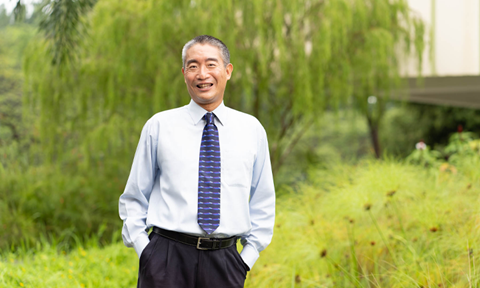Motivating Students to Learn
Professor John Wang presented at a webinar organised by the Academy of Singapore Teachers on 14 April 2021. In this webinar attended by about 1000 pre-service and in-service teachers across Singapore, Professor Wang addressed a pertinent question on motivating students to learn.
In his talk, he implored the teachers to adopt a mindset shift. Instead of asking “How do we motivate our students to learn?”, how about asking “How do we create the conditions within which our students can motivate themselves to learn?” Professor Wang detailed the tenets of the Self-Determination Theory (SDT) and their implications for classroom practices. According to SDT, students are capable of motivating themselves, but they must be given the conditions to do so. Within the classroom, teachers can create the conditions to nurture students’ inner motivational resources by adopting an autonomy-supportive motivating style instead of a controlling motivating style. For teachers, many factors can affect their motivating styles including factors at the school level, personal level and student level but the most important determinants of a teacher’s motivating style lie within the teacher – factors at the personal level. A teacher’s motivation to teach is important. The teacher’s motivation can influence classroom climate and consequently affects students’ motivation. It is thus important for teachers to first find their motivation to teach – finding meaning (identified regulation) to teach is good to have, passion (intrinsic regulation) is even better.
The webinar and the presentation slide are available in the section below.
FULL WEBINAR RECORDING AND SLIDES
Click here to download full webinar slides
PART 1 - HIGHLIGHTS OF WEBINAR
Part 2 What is your motivation to teach?
Part 3 Are your needs satisfied?
Part 4 What are the factors that influenced your behaviours?
Part 5 Are students capable of motivating themselves?
Part 6 Why is it important to promote intrinsic motivation?
Part 7 Time for a paradigm shift
Part 8 Autonomy supportive versus controlling styles
Part 9 Instructional behaviours of the two styles
Part 11 Benefits of autonomy supportive style
PART 2 - HIGHLIGHTS OF Q&A
Q 1 Since teachers’ motivation affects students’ motivation, what can teachers do to continuously motivate themselves?
Q 2 Does academic banding negatively affect the motivation in students? What are the necessary conditions to ensure that banding has a positive affect on students’ motivation?
Q 4 While intrinsic motivation is often seen as ideal due to its sustainability, I think both extrinsic and intrinsic motivation are influential in driving behaviour. How do we understand the optimal times to employ each method?
Q 9 How do you balance acknowledging their feelings and affect in the lessons with the time constraints that teachers have?
ABOUT THE PRESENTER

Professor John Wang is the E. W. Barker Chair in Physical Education and Sports Science by Nanyang Technological University. He was the former Dean, Graduate Studies and Professional Learning in National Institute of Education (NIE), Singapore. Professor Wang leads a group of NIE staff in the Motivation in Educational Research Laboratory (MERL) in NIE. The aim of MERL is to focus on specific motivational issues related to education and works on translating theories into knowledge for evidenced-based practice in education.






